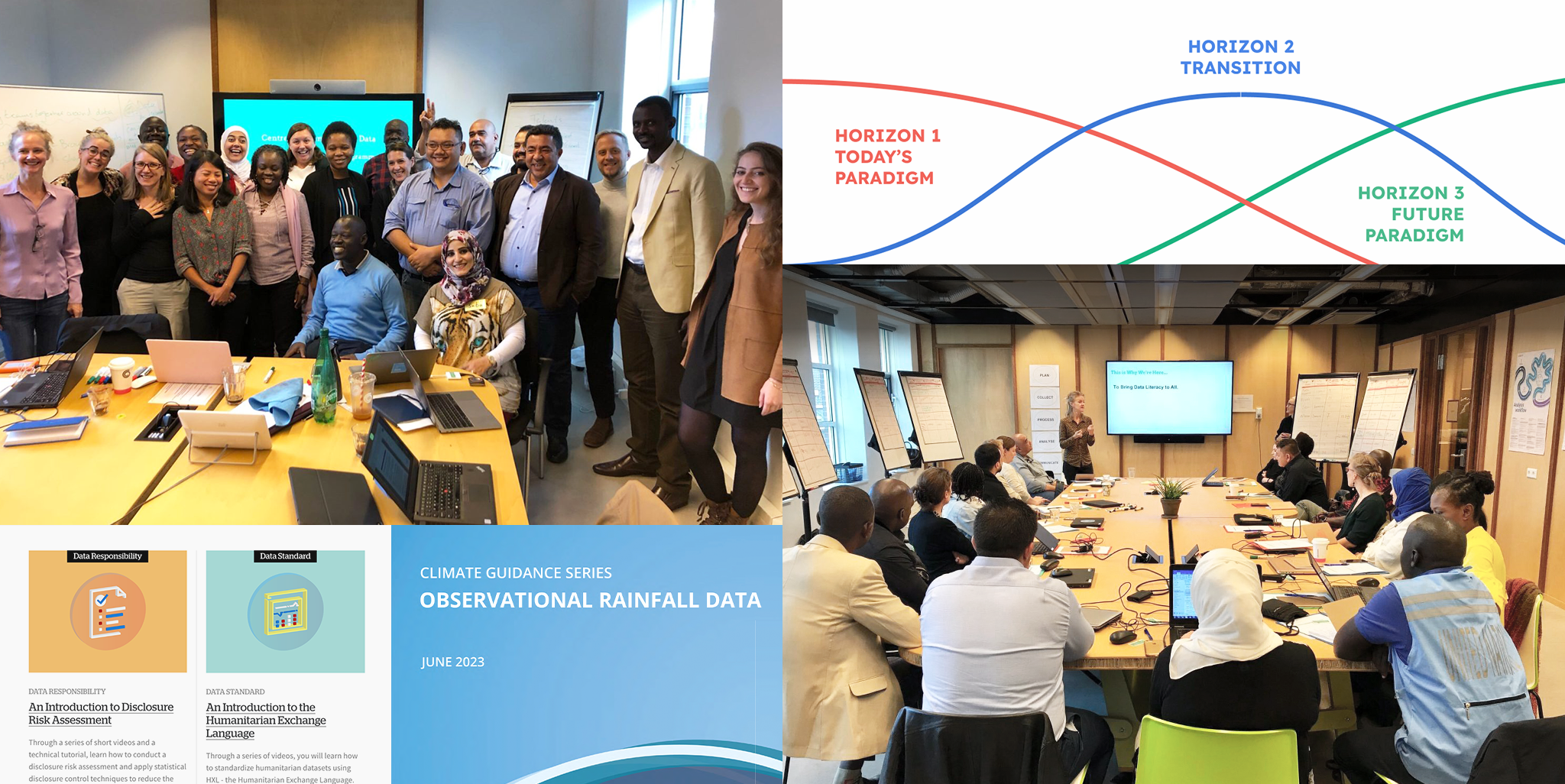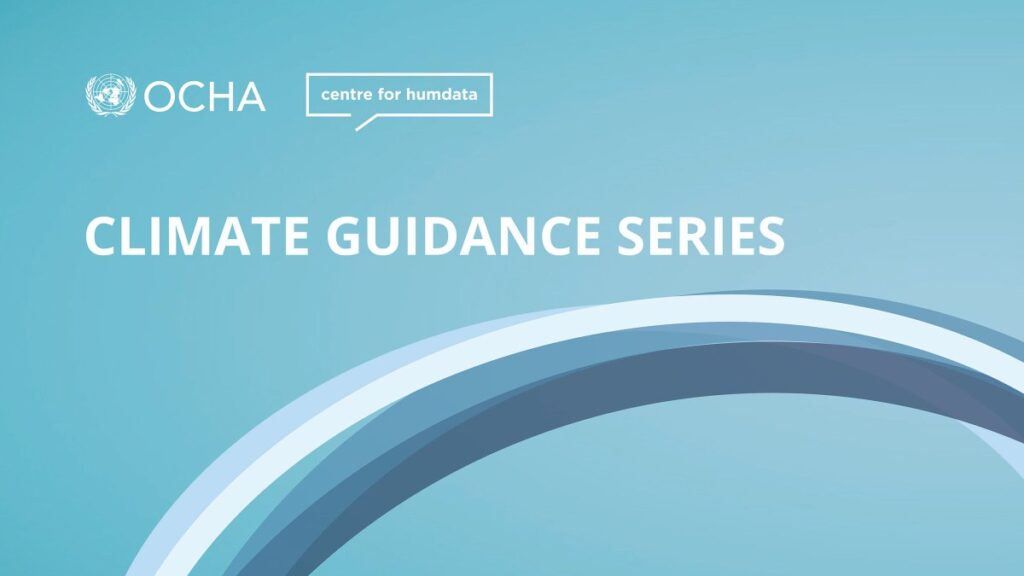The Centre’s Learning and Practice team works to improve the confidence of humanitarians to engage with data and make effective use of analysis. Our goal is to prime the sector for the innovative work of the Centre’s teams, laying the groundwork for the adoption of data responsibility and advanced analytics. To achieve this, our team focuses on three key areas: learning design, foresight and user research.
Learning Design
We design training and develop learning resources to support humanitarians across the breadth of ways they interact with data in their daily work. This includes helping to:
- Bridge the gap between technical staff and decision makers on data needs.
- Increase demand for better data and more targeted data collection.
- Improve conversations around data so that no one gets left behind by technical language.
We offer in-depth training on data-related topics that are critical for humanitarians to understand. We deliver these using innovative approaches such as simulations, scenario immersions and games to create interactive learning experiences. For example, we worked with scientific partners to develop and deliver in-person workshops and online sessions to strengthen OCHA’s capacity to use climate science to respond to predictable hazards.
This work builds on the other resources that we have created for the humanitarian community, including our Climate Data Guidance, Data Visualization Guidelines and Learning Paths. Moving forward, we will also create bespoke learning opportunities focused on the needs of managers and decision-makers.
Foresight
As of 2023, we have introduced a new capability to the work of the Centre: strategic foresight. We define strategic foresight as ‘an organized and systemic process to engage with uncertainty regarding the future’. Foresight has the potential to bolster confidence in decision-making within the humanitarian community, allowing humanitarians to navigate change and understand possible futures in a rapidly changing operating environment.
We will support OCHA and partners in understanding and navigating the evolving landscape of data and digital technologies in humanitarian action. Through horizon scanning and network convening, we will surface the opportunities and risks facing our sector, sharing these insights through collaborative sessions with teams across OCHA and partner organizations.
We are exploring where foresight can best support more resilient planning at a country-level. We will work with country offices to co-design pilot projects to test where longer-term thinking and risk analysis can help to enable anticipatory approaches to planning. These pilots will inform our foresight strategy moving forward, and we will share our learnings as we grow.
User Research
User research has been instrumental to the Centre’s work since the beginning. By deploying user research in the design of HDX, we were able to build a platform that centred the needs of our users, encouraging the use and sharing of data in the sector. User research has deeply informed the evolution of HDX over the past nine years; we have partnered with design agencies to enhance sensitive data management, build a future-ready product roadmap and address critical data gaps.
We have now established an in-house user research capability to ensure we are able to understand and adapt to the emerging needs of humanitarians. This capacity will help to bridge the gap between the Centre and the field, fostering an active feedback loop between humanitarian data users and our team.
If you would like to learn more about the work of the Learning and Practice team, please contact us at centrehumdata@un.org.

